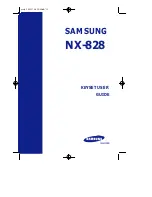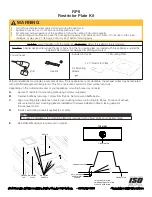
Figure 2 shows the effects of different temperatures
in relation to battery capacity.
The self discharge rate of Powerline SC is
approximately 3% per month when stored at an
ambient temperature of 20 C. The self discharge rate
will vary as a function of ambient storage
temperature. Figure 3 shows the relationship between
storage times at various temperatures and the
remaining capacity.
In general, when lead acid batteries of any type are
stored for extended periods of time, lead sulphate is
formed on the negative plates of the batteries. This
phenomenon is referred to as "sulphation". Since the
lead sulphate acts as an insulator, it has a direct
detrimental effect on charge acceptance. The more
advanced the sulphation, the lower the
charge acceptance.
Table 4 below shows the normal storage time or shelf
life at various ambient temperatures.
In general, to optimize performance and service life, it
is recommended that powerline sc which are to be
stored for extended periods of time be given a
supplementary charge, commonly referred to as a "top
charge", periodically. Please refer to the
recommendations listed on page 24 under top
charging.
The approximate depth of discharge, or remaining
capacity, in a powerline sc battery can be empirically
determined by referring to figure 5.
Storage, self discharge and shelf life
Self discharge
Shelf Life
Recharging stored batteries
Figure 6. Internal resistance of SC battery
o
Table 4. Shelf life at various temperatures
Available capacity, measured by open circuit voltage
Figure 4 shows extrapolated service life condition for
powerline sc at different ambient temperatures. As can be
seen from figure 4 higher ambient temperatures will
reduce service life.
Impedance
figure 4. Temperature/Life characteristics of
powerline SC
The internal resistance (impedance) of a battery is
lowest when the battery is in a fully charged state. The
internal resistance increases gradually during
discharge, Figure 6 shows the internal resistance of an
Powerline SC12-7 model measured through a 1,000 Hz
AC bridge.
Temperature
Shelf Life
15 months
12 months
9 months
5 months
2.5 months
-20 C(-4 F) to -1 C(-30.2 F)
o
o
o
o
0 C(32 F) to 20 C(68 F)
o
o
o
o
21 C(70 F) to 30 C(86 F)
o
o
o
o
31 C(88 F) to 40 C(104 F)
o
o
o
o
41 C(106 F) to 50 C(122 F)
o
o
o
o
-20
o
-10
o
-4
o
14
o
0
o
32
o
10
o
50
o
20
o
68
o
30
o
86
o
TEMPERATURE
(%)
120
100
80
6
40
20
0
PERCENT
AGE
O
F
C
AP
ACIT
Y
A
V
A
IL
ABLE
40
o
104
o
122
o
50
o
C
F
0.05X
C(A)
0.1X
C(A)
0.2X
C(A)
1.0X
C(A)
2.0X
C(A)
3.0X
C(A)
Figure 2. Temperature effects in relation
to battery capacity
Figure 3. Self discharge characteristics
(%)100
75
50
25
0
0
3
6
9
12
15
18
40 C(104 F)
o
o
30 C(86 F)
o
o
20 C(68 F)
o
o
10 C(50 F)
o
o
0 C(32 F)
o
o
REMAINING
C
AP
ACIT
Y
STORAGE TIME (MONTHS)
YEARS
OF
DESIGN
LIFE
Floating Voltage:2.27V/cell at 20 C battery temperature
o
Years
100%
75%
33%
7%
3%
20
30
40
50
60
o
C
TEMPERATURE
Figure 5. Open circuit voltage
vs remaining capacity
(V)
FOR 12v
BATTERY
(V)
FOR 6V
BATTERY
AT 20 C(68 F)
o
o
2
20
40
60
80
100
REMAINING CAPACITY(%)
5.0
5.5
6.0
6.5
7.0
14.0
13.0
12.0
11.0
10.0
OPEN
CIRCUIT
VOL
T
AGE
05
POWERLINE
SC
SERIES
Discharge

































